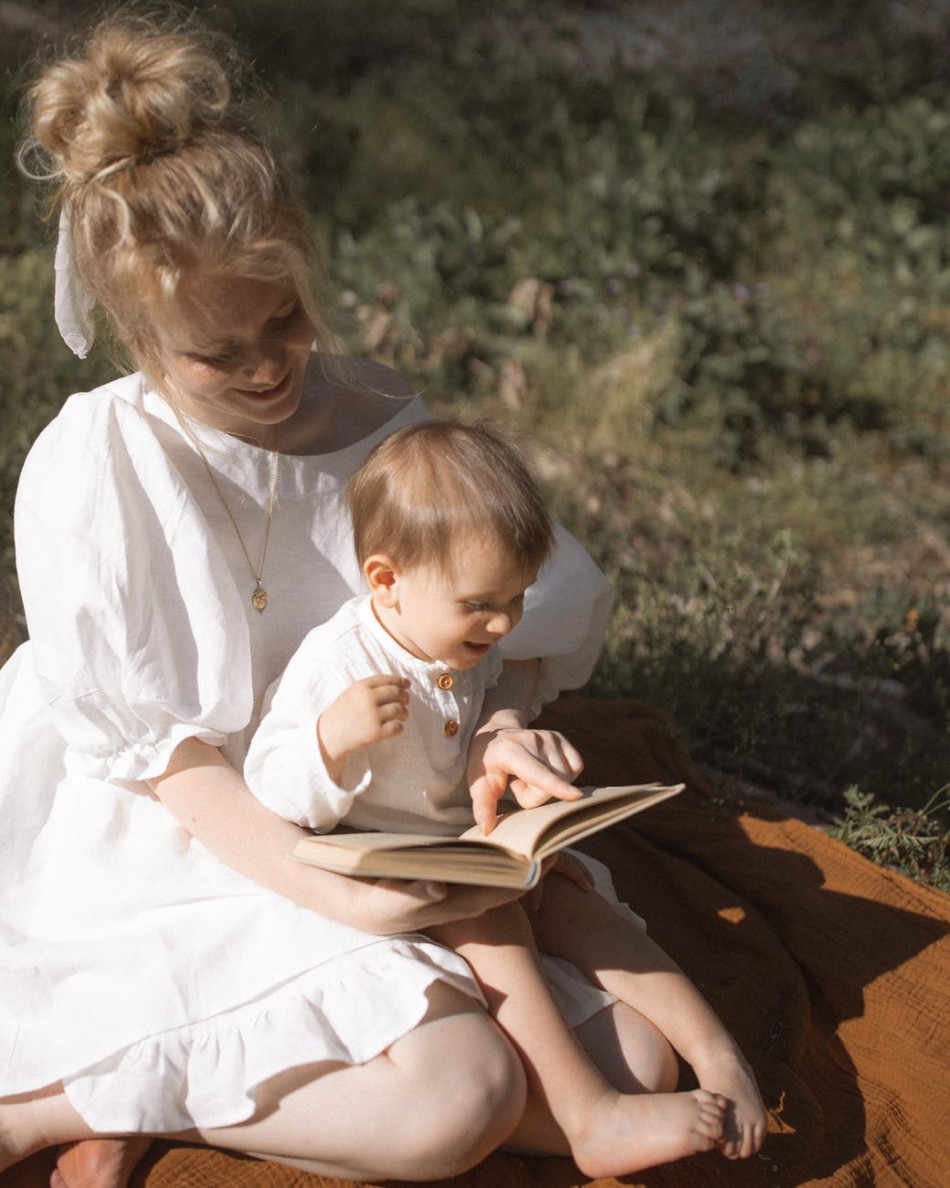Top Tips for Reading to Your Baby

If you're wondering when to start reading to your baby, the answer is: right now! Many experts suggest reading to your child as soon as they are born in order to provide them with the best head start possible in their language development. Here, we explore six of the most helpful tips for any parent getting started with reading to their child.
Find the Perfect Place
First things first, we need to find the perfect location for our reading session. The most important thing here is to pick somewhere that makes your child feel safe and calm, probably somewhere familiar to them with positive connotations, although you also don't want too many distractions, so maybe avoid the areas where they tend to play with their toys.
Also important is that you feel comfortable too! Reading to your baby can at times be a full-on performance, so you need to make sure you pick somewhere that isn't awkward or restrictive for you during extended periods of time.
Designating a special reading place helps build a routine and assure your baby that reading time is a safe, relaxed time to bond with mummy or daddy.
Choose the Right Books
It almost goes without saying that choosing the right book is imperative when reading to your child. The main part of this is choosing a book which is age appropriate - you don't want the story to be too complicated or too easy for your child.
Young babies, namely those yet to turn one, respond best to books with bright pictures, colors and patterns. A slightly older baby (1-2) will probably prefer an actual story to listen to with engaging, relatable characters (such as farm animals that make funny noises!) while those aged three and over will be beginning to recognize numbers and letters, and will probably get a kick out of books which test their new skills and make it possible for them to read aloud all by themselves.
If you read with your child regularly, you should naturally recognize their progress and sense when it's time to upgrade to a slightly more sophisticated type of book.
Make it Exciting
The easiest way to make reading a positive experience for your child is to make it fun. Bring the narrative to life with silly voices, singing, acting and anything else you can think of to transport them into the world of the story.
Another great way to engage your child is to involve them in the story directly. Personalized versions of their favorite stories and nursery rhymes add in their name to make them a real tangible part of the story, making for an extra special and memorable experience.
Use Reading Exercises in Everyday Life
One technique which can really help a child's development and literacy skills is the transferring of conversations you have during reading time over to the real world, and vice versa. Maybe you're reading a book about animals, and ask your child what noise the dog in the story makes. Then, the next time you're out for a walk or at the park, you can ask the same question to your child when you see a real dog. This works both ways, and can be applied to numerous things such as food, colors, vehicles and more. All this helps your child understand the relationship between what they see in their favorite books and what they see in the real world.
Get into a Routine
Reading at the same time every day brings structure to your child's life, and helps them focus on the task at hand. Knowing that this is their special reading time removes the possibility of any surprises or distractions and helps them concentrate. Having a routine also helps you to make time for reading and prioritize it. As with anything, reading to your child sporadically as and when you have the time is far less beneficial to their development than doing it regularly and systematically.
Repeat, Repeat, Repeat
Repetition is one of the most fundamental tools at our disposal as we read to our children. Repeating the same word or phrase helps the child's brain to absorb and remember the information - this is why many children's books will repeat the same set sentences over and over throughout a story. Children revel in being able to successfully predict what is coming next, and repetition makes this possible for them.
For the same reason, don't be afraid to read the same books over and over again - in fact, this is highly recommended. Clinical psychologist Dr. Elizabeth Westrupp says:
Not only do children love having the familiarity of their favourite books but the repetition is so valuable. Anyone learning something new will find it more helpful if we have something familiar to us, so that not everything is completely new, which can be uncomfortable. Children can benefit from reading the same books over and over again because they can learn to expect and predict what's coming next and that can be quite enjoyable for them.
© 2024 ParentHerald.com All rights reserved. Do not reproduce without permission.
* This is a contributed article and this content does not necessarily represent the views of parentherald.com
